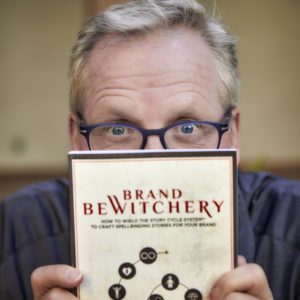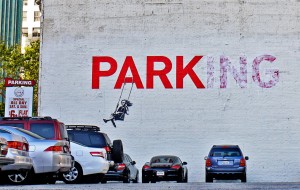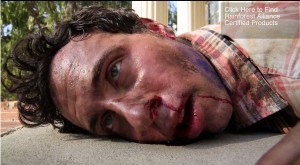The Best Business Storytelling Keynotes Don’t Tell But Show Your Attendees How to Storytell
Business storytelling is all the rage these days and for good reason: it works!
But many storytelling keynote speakers tell you why you should tell stories without showing your attendees actually how to excel through the stories they tell.
When you produce a conference, you set out on a truly heroic journey. You need speakers that place your success above all else, or else find one who does.
So if you’re seeking a conference storytelling speaker to inspire your participants while equipping them with proven narrative frameworks that they can apply immediately in their work, then ask your potential presenter the following six crucial questions.
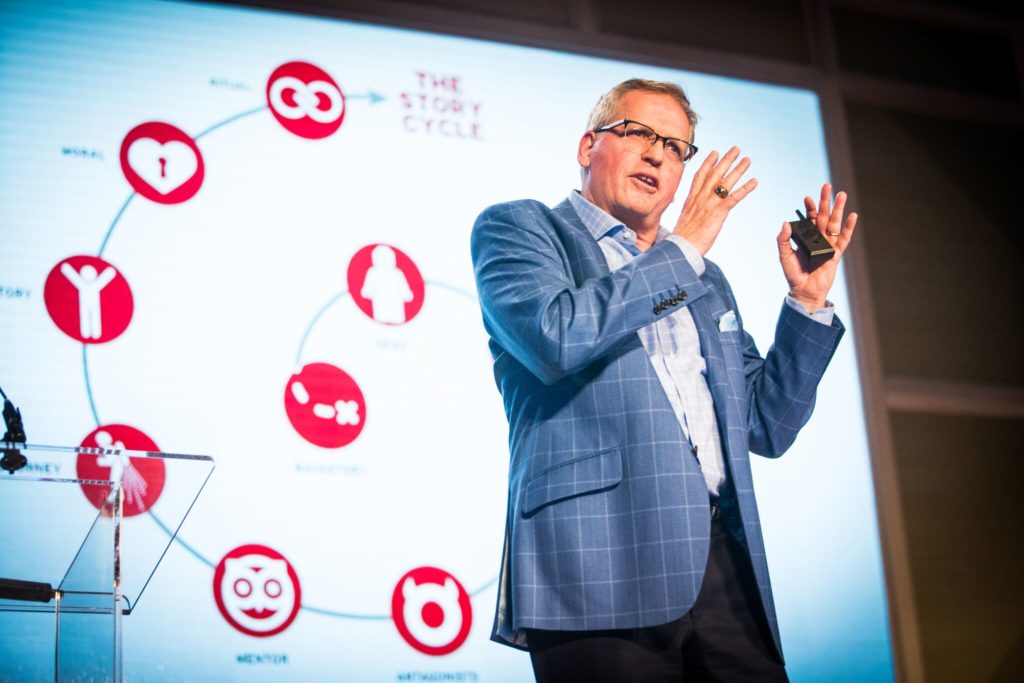
1. How Will You Prime My Conference Attendees for Success?
Business people are insanely busy. They are either eager to attend your event for a break in their maniacal life and to learn something for professional growth, or they’re dreading its disruption to their schedule. You may even have a third group of employees that is simply disengaged. That “Meh” member.
Regardless of their mindset, your job and the job of your storytelling speaker is to make them care! That’s why priming your audience for success is critical.
I’ve found that providing pre-conference storytelling resources is like a movie trailer that entices your audience. So I share story insights relevant to your attendees including a Business of Story podcast episode, blog post and video to prep them for the keynote. Plus, the advance information gets your attendees familiar with story structures so we hit the ground running, making your 60-minute storytelling keynote abundantly more memorable for your primed participants.
Many of your participants will start practicing their storytelling skills even before the session begins by using these added value insights and resources.
2. How Will You Captivate My Seminar Participants?
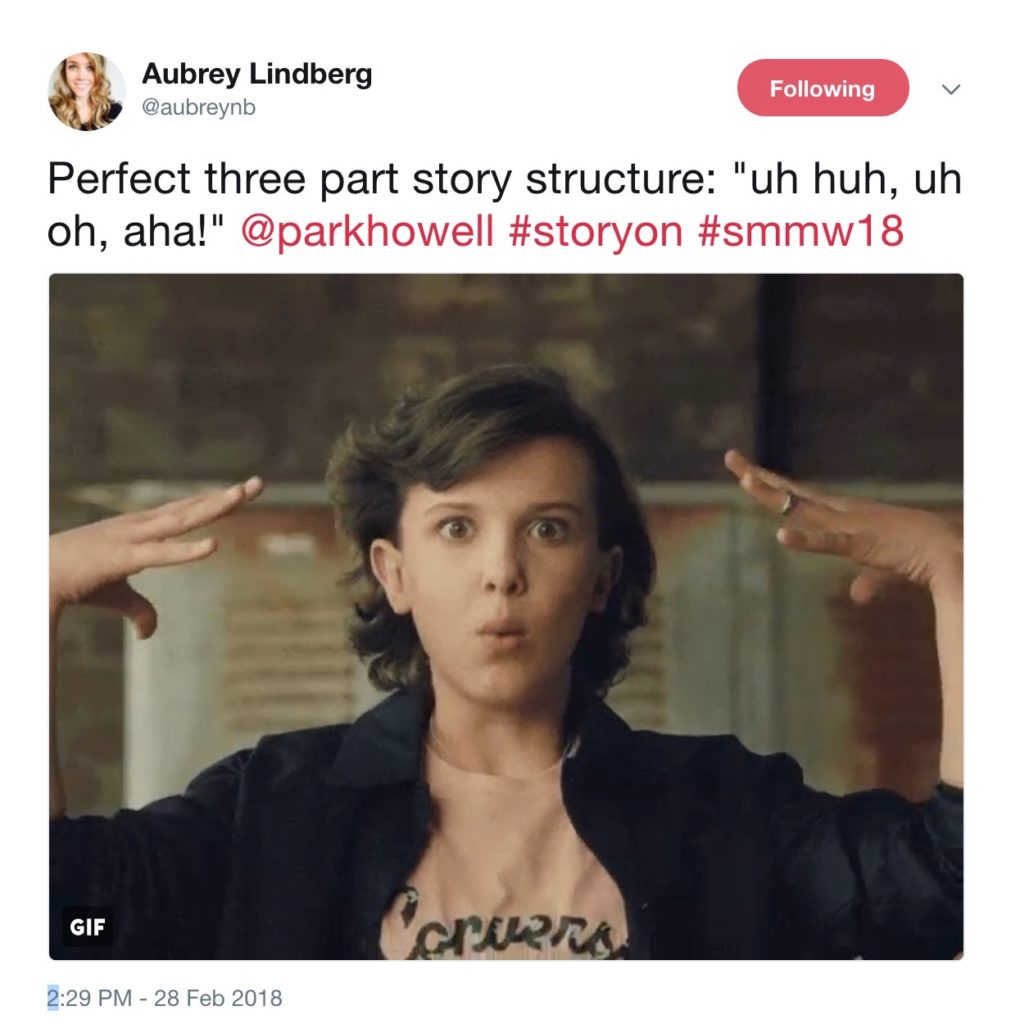
Your conference attendees want to be entertained and then educated. I mean, when was the last time you were bored into buying anything? The same is true with your crowd.
Have you seen it when the speaker is cursed by their expertise? For example, the presenter provides a cookie-cutter dissertation on Freytag’s Pyramid or Pixar’s intricate narrative steps to create its blockbuster Finding Nemo when all the audience members wanted to do was find the nearest exit.
Top speakers on brand and business storytelling are mages of sorts. Your attendee is the sorcerer’s apprentice. That’s why I teach the applied science and bewitchery of storytelling tailored specifically to your audience. While storytelling is a one-size-fits-all skill, how you teach it is not.
Your conference-goers learn three proven narrative frameworks (the applied science) that they can immediately apply in their work. In the process, they experience how stories summon surprising forces (the bewitchery) of meaning through emotion.
For example, an astonishing insight was unearthed for high-tech executive Anjella Crowe and her colleagues as she conjured her origin story before their very eyes using a narrative template. Anjella recalled growing up in a Ukranian orphanage. To thrive, she had to forge relationships she could trust with her frriends and staff. This, she realized at that moment, is why she now excels at building customer alliances and partnerships for Silverline CRM. Her team was transfixed by her tale and how it has shaped who she is today. (You can hear Anjella’s full story in my TEDx Talk).
Your storytelling speaker should model the storytelling advice their giving through, well, stories. I know, it’s very meta. But it matters. Because this approach honors the old storytelling axiom of show don’t tell if you want to captivate an audience and move them to action.
3. How is Your Storytelling Training Applicable to Our People?
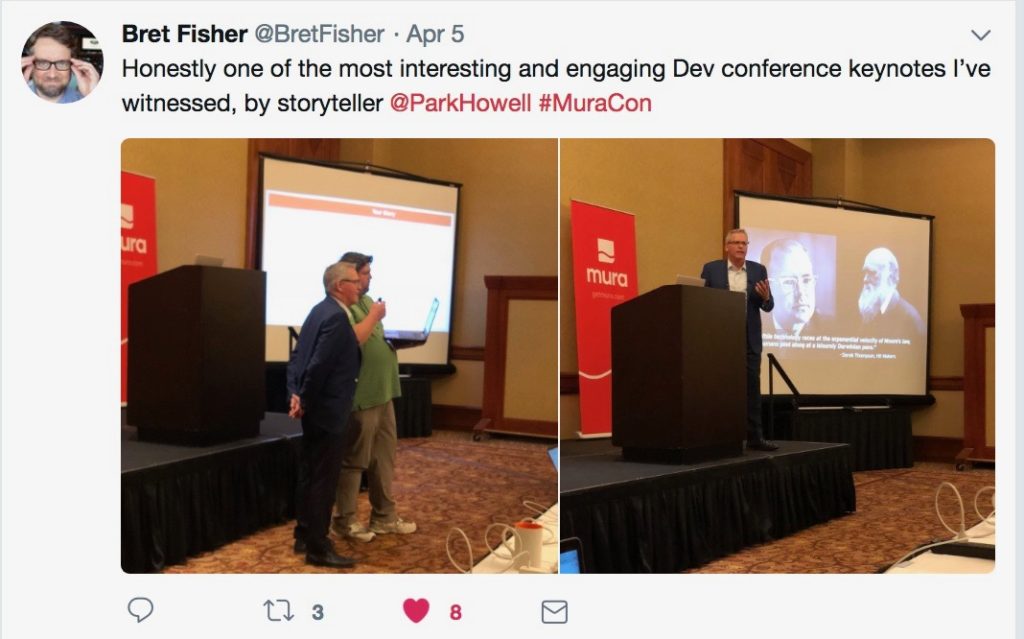
Most storytelling speakers try to inspire and motivate, and rightly so. But your storytelling keynote must bridge the gap from aspiration to action. Otherwise, this particular session in your conference is going to land on the cutting room floor of your attendee’s consciousness.
Have you witnessed when an audience is beguiled by a story, especially when your speakers uses it during the session? Another moment that stands out for me was during this year’s Social Media Marketing World conference in San Diego, CA. I asked volunteers to share their And, But & Therefore (ABT) statement I taught them to clarify their brand story. A woman, smooshed against the far left wall in the room of 500+ content marketers, shot up her hand. Out of the corner of my eye, her exuberance caught my attention over the dozens of other hands.
“I want to share my ABT,” she declared
“Go for it,” I said.
With confidence, she read…
“Parents are looking for educational alternatives for their children AND more are turning to homeschooling. BUT they often feel lost and alone because there is no support network. THEREFORE, my company provides a home-schooling community to help parent-teachers learn from one another.”
The room erupted with applause for how concise the frame of her story was. It was clear to them who she serviced; who she was for. And they marveled at how they could use this simple but profound story structure that our brains crave of “set up | problem | resolution” so quickly. Like magic, they embraced the revelation.
4. How Will You Transform My Audience Members?
Learning how to transform from an innate storyteller to an intentional one should be fun, not intimidating. I’ve learned from coaching our brand storytelling clients to teaching international executives in an MBA course at Arizona State University to training generals in our U.S. Air Force that storytelling is our common denominator. It’s what makes us human, regardless of your stripes.
Glenn Marvin, an ad agency executive in Auckland, NZ, told me following my keynote there in March 2019 that he used my narrative frameworks to land an additional $10,000 in business from one of his current customers. And now Glenn is teaching his clients how to use storytelling to transform their brands.
Brigadier General Christopher “Mookie” Walker shared on the Business of Story podcast how he used the Story Cycle System™ to craft his presentation to football players on the West Virginia State University before their 2018 season. His goal was to incite their leadership potential to combat opioid addiction among the state’s youth, transforming one of the nation’s most afflicted communities.
Transformation even comes in surprising ways, like when Saul Nir expressed his revelation following our storytelling session:

You never know when and where transformation is going to happen. But I’ve witnessed audiences’ hearts and minds change quickly during these keynotes. This idea of transformation is captured beautifully by Hollywood story consultant Christopher Vogler in his book, The Writer’s Journey: “Storytellers, most of the time, are in the wish-granting business.”
That’s why I believe you have to understand the magic to cast the spell and grant their wish. When you do, magical transformation can happen.
5. How Will You Provide Unreasonable Added Value?
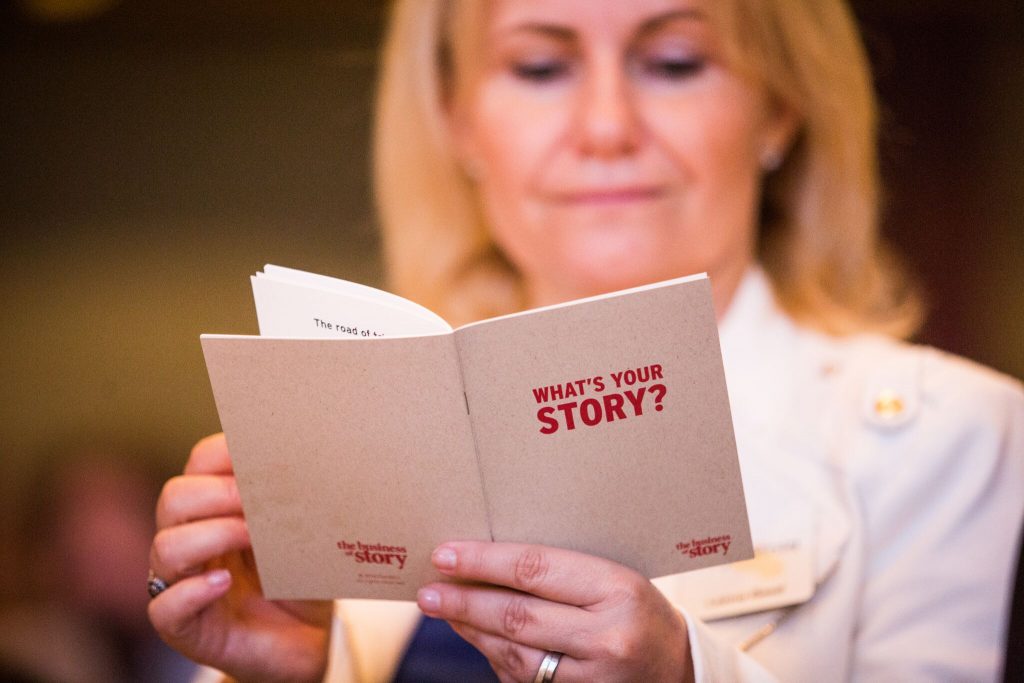
Recently, I was invited to present business storytelling at a presitigous medical conference in Scottsdale, AZ, in early 2020. The conference organizer said that since the other speakers were unwilling to make their presentation decks available to the attendees following their keynotes that he didn’t expect me to either. Much to his surprise, I told him I’d be happy to supply my storytelling deck. Plus, I’ll include a dozen additional links to storytelling resources within the deck to amplify the information in my presentation. He was shocked that a speaker would be so forthcoming.
Does the business storytelling speaker you’re considering consider their content to be highly-prized intellectual property that they simply can’t part with? If so, then ask yourself how much your attendees are truly going to grow from the keynote.
Look, we didn’t invent storytelling. Your storytelling expert should reveal to your audience proven narrative frameworks that frankly have been around since before recorded history. Stories are what have evolved us from cavemen to consumers. No one has the patent on storytelling. So why not freely share what we’ve learned?
I happily provide unreasonable sdded value. I call it “unreasonable” because some competitors think I’m crazy “giving away” all that I’ve learned about the power of story. But that’s my job: to re-ignite in your audience the one true superpower we all possess – storytelling – to nudge the world in any direction they choose. It starts with an abundance mentality. I didn’t invent it. But I do share freely what I’ve learned.
That’s why I love to provide invaluable free advice in the form of:
- Storytelling insights and resources to prime your attendees before the conference
- The And, But & Therefore worksheet to help them find the focused theme for all of their messaging
- The 5 Primal Elements of Story exercise to capture a small story that can make a big impact
- The What’s Your Story? field notebook to help your participants capture their full-featured narrative guided by the Story Cycle System™
- My deck with links to a dozen additional storytelling resources to help your participants build their storytelling muscles long after my keynote is history
- Heck, I’ll even jump on a one-hour live ZOOM session if you end up with a rogue contingent of inspired storytellers who want more down the road
Invaluable free advice by providing unreasonable added value is what ignites your audiences and grows intentional storytellers. When your speaker provides this for them, you will create a more powerful organization because your attendees will now have an increased ability to understand their own audiences, connect on a deeper level through enhanced empathy, and move people to action through compelling applicable storytelling.
You should expect no less from your business storytelling speaker.
6. How Will You Make Me the Hero of My Conference?
Incredibly insightful, yet absolutely practical & applicable tools for figuring out “your story”. What’s unique about you, your brand – & what you’ve got to offer as solution @ParkHowell #SMCNZ19 #StoryOn pic.twitter.com/UPHNYqZEFK
— Catherine Sylvester (@_csylvester_) March 2, 2019
I know, it sounds completely selfish to think of yourself as the hero of your gathering. But you’re the one putting it on, and therefore putting yourself out there. All conscientious business storytelling speakers will place you and your attendees at the center of your conference story. Your speaker, although center stage, is NOT the central character in your journey. We play the important role of mentor or guide in service to you and your audience.
As mentioned, I do a lot of speaking and workshops on storytelling to generals in the United State Air Force. At the end of one session on a particularly humid summer morning in 2017 working with 140 generals and their staff at Andrews Air Force Base in Washington D.C., one three-star general in the top row of the theater raised his hand.
“Yes sir,” I acknowledged.
“I have a correction to your very first story of the day,” he announced from on high.
I thought, oh boy I’m in trouble for misstating something only a civilian like me could cock-up.
“You said you have never served in the armed forces,” he continued. “But I can assure you that you have served us with great honor today, and for that I commend you.”
I turned red, swallowed hard and had a shiver electrify my spine as the gathering ignited their applause afterburners. I had never been more proud to share my approach to the applied science and bewitchery of storytelling with a group.
But it only landed with them because I placed my audience at the center of my storytelling keynote. I was there in service to them.
I learned this idea of placing your customer at the center of the story while spending five years creating and teaching the storytelling curriculum for the Executive Masters of Sustainability Leadership at Arizona State University. Your students, customers, audience, attendees, participants, clients are at the center of every story you tell. Make them the hero of your journey by understanding their journey, and then connect your two worlds. That’s where you make a world of difference in their lives.
So how will your storytelling presenter take care of you and your participants from your very first planning call through their final bow and beyond? They should ask you the following three critical questions. If they don’t, then question if they’re right for you and your attendees.
- What does a win look like for the members of your audience?
- What do you want your attendees to think, feel and do following my presentation or workshop?
- What does a win look like for YOU and how can I help you achieve that victory?
Oh, and one more thing: Does your business storytelling keynote speaker provide a “No-Primadonna Guarantee”? That may be the most important question to ask of all.
#StoryOn!


